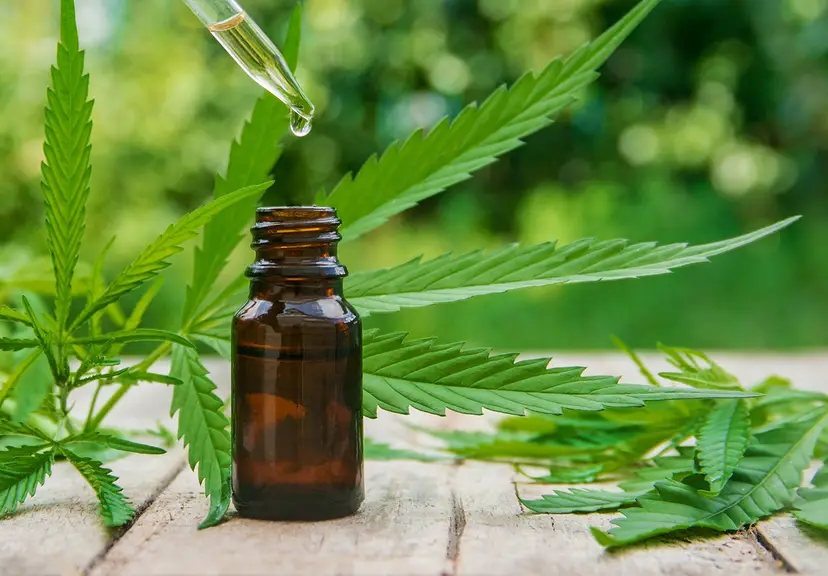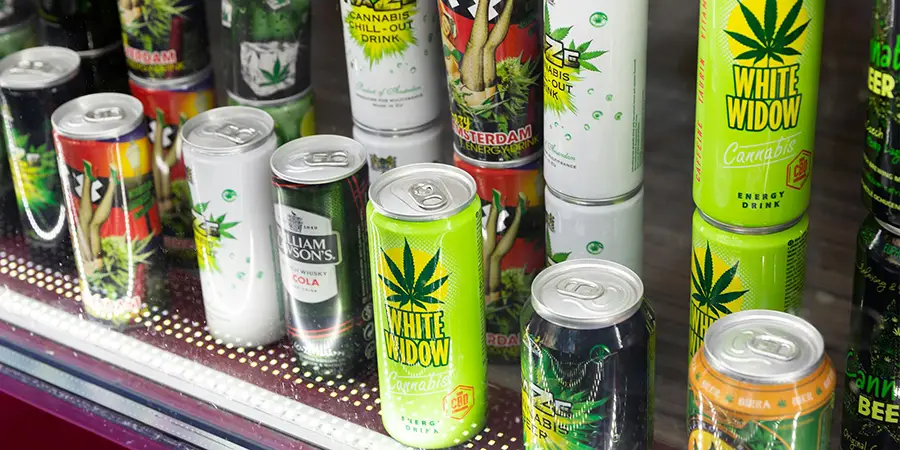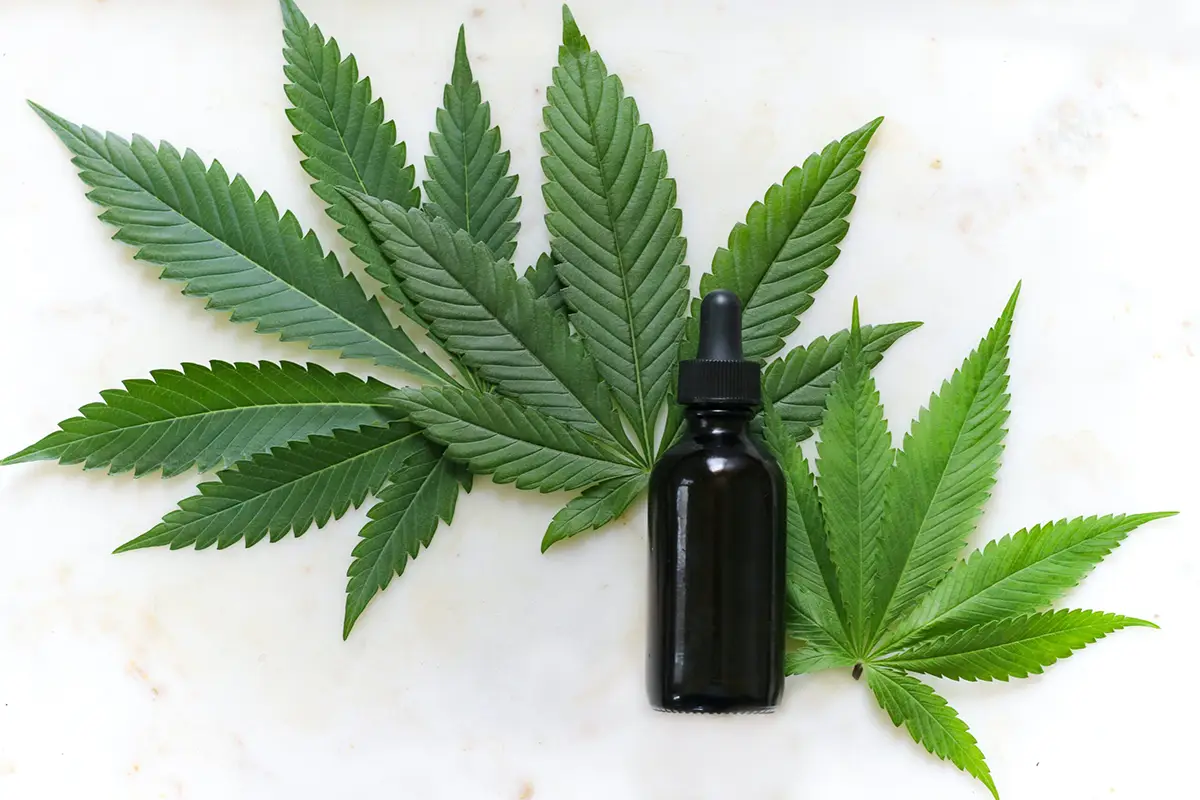The cannabis industry is undergoing a seismic shift in 2024, with health and wellness at the forefront of this green revolution. As we navigate through these changes, understanding the nuances of cannabis consumption can lead to improved well-being and a more balanced lifestyle.
Understanding the Basics of Cannabis Microdosing
Microdosing cannabis is becoming increasingly popular as a means to gain the therapeutic benefits of THC without the intense psychoactive experiences. It involves the consumption of small, manageable doses, suitable for conditions such as anxiety, chronic pain, depression, stress, and more, enhancing daily function without the typical ‘high’ associated with higher doses.

Clinical Studies and Innovations
Recent studies have highlighted the effectiveness of microdosing. A study conducted in Israel demonstrated that low doses of inhaled THC could significantly reduce pain levels in chronic pain patients. Importantly, these patients experienced a reduction in pain with minimal cognitive impairment, thus maintaining their daily functioning and quality of life. Another piece of research suggested that even 1 mg of THC could effectively relieve chronic pain, showcasing the “less is more” approach in medicinal cannabis consumption.
The concept extends beyond THC; CBD and THC combined microdosing has been shown to extend therapeutic windows, reducing the likelihood of adverse effects while maximizing benefits. This approach underscores the importance of personalized dosing, as individuals’ responses to cannabis can vary widely due to factors like metabolism, receptor genetics, and previous usage.
Optimal Dosage and Consumption Methods
Determining the optimal dosage for microdosing is subjective and should be tailored to the individual’s needs and responses. Starting with low doses, such as 1-2.5 milligrams of THC, and gradually adjusting is recommended to find the minimal effective dose that provides relief without undesired effects. Various methods for microdosing include inhalation (smoking or vaping), sublingual (tinctures, oils), and oral consumption (edibles). Each method has its onset time and duration of effects, with inhaled methods offering more immediate feedback but shorter-lasting effects compared to edibles.
For those new to cannabis or returning after a break, a period of abstinence might be beneficial before starting microdosing. This reset can enhance sensitivity to cannabis, making low doses more effective.
Personalized Approach and Medical Guidance
Microdosing is a highly personalized practice, and what works for one individual may not for another. It’s crucial to start low, go slow, and pay attention to your body’s responses. Consulting with healthcare providers, especially those specializing in cannabinoid medicine, can provide tailored advice and ensure a safe and effective micro dosing regimen.
Microdosing cannabis is often considered for a variety of conditions, including but not limited to:
- Chronic Pain: Conditions like neuropathy, arthritis, and fibromyalgia may see symptom relief with microdoses of cannabis, aiming to reduce pain without significant psychoactive effects.
- Anxiety and Stress: Small doses of cannabis may help manage anxiety and stress without the overwhelming side effects that higher doses can induce.
- Depression: Some individuals use microdosing as a way to alleviate symptoms of depression, seeking a balance that doesn’t impair daily functions.
- PTSD: Post-Traumatic Stress Disorder symptoms, such as insomnia and nightmares, might be mitigated with controlled, low doses of cannabis.
- Focus and Creativity: Microdosing is also explored by some for enhancing focus, creativity, and productivity, particularly with strains high in CBD.
- Sleep Disorders: Issues like insomnia might be addressed with microdosing, especially using cannabis strains known for their sedative properties.
- Appetite and Digestion: It can be used to regulate appetite and aid digestion, with specific cannabinoid profiles tailored to these needs.
Microdosing cannabis offers a promising approach for those seeking to leverage the therapeutic potential of cannabinoids with minimized psychoactive effects. As research evolves and the market responds with precision-dosed products, individuals have more opportunities to customize their cannabis use for health and wellness, improving their quality of life while maintaining daily functionality.
Refreshment Reimagined: Cannabis Beverages
Cannabis-infused beverages are quickly becoming a staple in the health and wellness sector, offering consumers an innovative and refreshing way to consume cannabinoids. These beverages, ranging from teas and seltzers to coffees and sodas, are transforming cannabis consumption by providing discreet, controlled, and enjoyable alternatives to traditional methods such as smoking or edibles.

Varieties and Innovations in Cannabis Beverages
Cannabis beverages come in various forms, catering to different tastes and preferences. For example, calming teas infused with CBD or CBN are designed to help with relaxation and sleep, making them a popular choice for evening consumption. On the other hand, invigorating seltzers and coffees might contain THC or CBD to boost energy levels and focus, suitable for daytime use.
The innovation doesn’t stop at teas and seltzers; cannabis sodas offer a nostalgic and refreshing way to ingest cannabinoids, often available in classic flavors like cola or root beer with a cannabis twist. These sodas, along with other cannabis beverages, are meticulously formulated to ensure a pleasant taste without the overpowering flavor of cannabis, making them appealing to both new users and connoisseurs.
Milligram Doses and Consumer Control
One of the key features of cannabis beverages is the precise control they offer over dosing. Products typically range from low doses (2-5 mg of THC or CBD per serving) to higher doses (10-25 mg per serving), allowing consumers to tailor their experience based on their tolerance and desired effects. This precise dosing is particularly beneficial for microdosing practices, where consumers seek the therapeutic benefits of cannabinoids without the psychoactive high.
California brands like Atlas, Uncle Arnie’s, Leisure Town, Kwik Ease, Manzanita, Papst, Tonik, and St. Ides are leading the way in this beverage revolution. These brands offer a variety of flavors and cannabinoid profiles, catering to the diverse preferences of consumers. For instance, Atlas offers a range of natural, fruit-flavored sparkling waters infused with THC and CBD, while Uncle Arnie’s is known for its potent iced tea beverages.
CBN for Sleep and Innovative Choices
Among the different cannabinoids infused in beverages, CBN (cannabinol) is gaining popularity for its sedative properties. CBN-infused drinks, such as certain teas and seltzers, are marketed as sleep aids, providing an alternative to traditional sleep medications. These beverages often contain a blend of CBN and CBD, enhancing the relaxing and sleep-inducing effects without inducing a high, making them ideal for consumers looking to improve their sleep quality.
In addition to sleep aids, the market is seeing an influx of innovative cannabis beverages, such as caffeinated sodas and energy drinks, combining the uplifting effects of caffeine with the calming properties of cannabis. This combination offers a balanced experience, perfect for those seeking alertness without the jitters associated with regular caffeinated drinks.
Educational Aspect and Clinical Studies
While the market for cannabis beverages is expanding, it’s important for consumers to educate themselves on the effects and proper dosing of these products. Clinical studies and research on cannabis-infused beverages are still in the early stages, but initial findings suggest that they can offer a safe and effective way to consume cannabinoids, particularly when it comes to managing anxiety, pain, and sleep disorders.
For example, research has shown that low doses of THC can significantly reduce pain levels without adverse cognitive effects, making microdosing an attractive option for those seeking pain relief. Similarly, CBD-infused beverages have been found to help reduce anxiety and improve mood, providing a gentle and natural way to manage stress.
Cannabis beverages are revolutionizing the way people consume cannabinoids, offering a range of products that cater to different needs and preferences. With the variety of options available, from sleep-inducing teas to energizing sodas, consumers can enjoy the therapeutic benefits of cannabis in a sociable, controlled, and enjoyable manner. As the market continues to grow, it’s likely that we’ll see even more innovative products and research supporting the benefits of cannabis-infused beverages.
Precision Wellness: Exploring the realm of Cannabis Pills
Cannabis pills are gaining momentum in the wellness industry as a discreet, precise, and easy-to-use option for consuming cannabinoids. Unlike traditional forms of cannabis consumption, pills offer a no-mess, no-smell alternative, making them especially appealing for both new users and experienced consumers looking for convenience and control.
Trending Brands and Products
In California, brands like Emerald Bay, Kikoko, and Level are pioneering this space, each bringing unique offerings to the table. Emerald Bay extracts pure cannabinoids to create a range of pills designed to cater to various needs, from pain relief to relaxation and better sleep. Kikoko provides a holistic approach, combining cannabinoids with other natural herbs and ingredients to enhance specific effects like mood elevation or anxiety reduction. Level, on the other hand, focuses on creating cannabinoid-specific capsules, allowing users to explore the effects of individual cannabinoids such as THCA, CBG, and Delta-8 THC.
These brands typically offer pills in varying doses, from microdose options as low as 2.5 mg to more potent doses upwards of 100 mg per pill. This range allows consumers to start low and go slow, finding the perfect dosage for their individual needs and tolerance levels.
Vallejo Relief Center is proud to offer many of California’s top-quality and best-rated cannabis brands.
Tinctures: Versatile and Effective
Moving beyond pills, tinctures present another popular method for consuming cannabis. These liquid extracts offer versatility and efficiency, with the ability to take them sublingually (under the tongue) for quick absorption or add them to food and drinks for ease of use.
Top California brands such as Papa & Barkley, Cannavis, Drink Loud, High Power, and Space Gems have become great innovators in the tincture market. Papa & Barkley is known for its full-spectrum, solvent-free cannabis oils, providing a natural and potent product. Cannavis offers flavored THC and CBD tinctures, appealing to those looking for taste along with therapeutic benefits. Drink Loud and High Power are recognized for their high-potency options, catering to those with higher tolerance or greater therapeutic needs. Space Gem takes a different approach, focusing on organic, vegan ingredients to create a cleaner and more health-conscious product.
Tinctures come in various concentrations, with CBD, THC, and CBN options to cater to different therapeutic needs. CBD tinctures are popular for their non-psychoactive, anti-inflammatory, and anxiety-reducing properties. THC tinctures, meanwhile, are sought after for pain relief, sleep improvement, and their euphoric effects. CBN tinctures are emerging as sleep aids, capitalizing on the sedative properties of this lesser-known cannabinoid.
Doses and Product Range
Tinctures are typically available in bottles with droppers, allowing for precise dosing. Consumers can start with as little as one drop and gradually increase the dosage until they find their optimal effect. The standard range varies from 5 mg to 100 mg per milliliter, providing a spectrum of strengths to accommodate different consumer needs.
Shots and Syrups: Innovative Consumption
In addition to traditional tinctures, the market is seeing the emergence of cannabis shots and syrups. These products offer a novel way to consume cannabinoids, combining convenience with fast-acting effects. Cannabis shots, similar to energy shots, are designed for on-the-go consumption, providing a quick and measured dose of cannabinoids. Syrups, on the other hand, can be mixed with beverages or taken directly, offering a customizable and enjoyable experience.
Benefits and Considerations
The benefits of tinctures, shots, and syrups include ease of use, fast absorption, especially with sublingual use, and the ability to tailor doses precisely. They are ideal for individuals seeking immediate relief or those who prefer not to inhale their cannabis. However, consumers should be mindful of the onset time and duration of effects, which can vary based on the product and method of consumption.
Cannabis pills and tinctures represent a significant shift towards more accessible, discreet, and controlled cannabis consumption. Brands like Emerald Bay, Kikoko, Level, Papa & Barkley, Cannavis, and others are at the forefront of this movement, offering products that cater to a wide range of preferences and needs. As the market continues to evolve, these products are set to play a pivotal role in mainstreaming cannabis and integrating it into daily wellness routines.
Skin Deep Relief: Unveiling the Power of Cannabis Topicals
Cannabis topicals are becoming increasingly popular as a method of consumption due to their non-intoxicating effects and ability to provide localized relief. These products include creams, lotions, oils, salves, and transdermal patches, each designed for specific uses such as pain relief, inflammation reduction, and skin health improvement.
CBD and THC Ratios in Topicals
Topicals can vary significantly in their CBD and THC content. Brands like Papa & Barkley and Care By Design offer products with varying ratios, allowing consumers to choose based on their therapeutic needs. Products may range from high CBD with minimal THC, ideal for anti-inflammatory and analgesic effects without psychoactivity, to balanced ratios that provide both the benefits of CBD and THC.

Types of Topicals and Their Uses
- Creams and Lotions: Typically used for skin health and localized pain relief. They are easy to apply and can be used anywhere on the body.
- Body Oils: These are often used for massage and can help with muscle soreness, joint pain, and skin conditions.
- Salves: Thicker than lotions, salves are ideal for treating specific areas of discomfort or skin issues like psoriasis and eczema.
- Transdermal Patches: These are unique as they can deliver cannabinoids directly into the bloodstream, providing long-lasting relief. They are particularly effective for chronic conditions and can contain CBD, THC, or both.
Educational Insights and Clinical Studies
Despite the growing popularity, large-scale clinical studies on topicals are limited due to marijuana’s legal status. However, smaller studies and anecdotal evidence suggest effectiveness in treating conditions like arthritis, skin disorders, and localized pain. For example, transdermal patches have been recognized for their potential to provide improved bioavailability and extended relief compared to other forms of administration.
Research has indicated that cannabinoids like CBD and CBN are more permeable to the skin compared to THC, making them effective for topical application. Moreover, adding terpenes such as beta-caryophyllene could enhance the therapeutic effects, particularly in treating neuropathic pain.
Dosages and Applications
When using topicals, starting with a small amount and gradually increasing to find the effective dosage is recommended. The concentration of cannabinoids varies widely among products, so checking the label for CBD and THC content is crucial. For patches, the dosage can be more controlled and may offer continuous relief over hours or days.
Choosing the Right Product
When selecting a topical product, consider your specific needs and desired effects. Look for high CBD products for non-psychoactive relief. If you’re seeking more balanced effects, choose products with equal parts THC and CBD. Always opt for reputable brands like Papa & Barkley, Care By Design, and others mentioned to ensure quality and safety.
Cannabis topicals offer a discreet, effective way to manage pain, inflammation, and skin conditions without the psychoactive effects associated with other cannabis products. As research continues and the market evolves, topicals are set to become an integral part of cannabis-based wellness.
Embracing the Cannabis Wellness Revolution
As we look to the future, the intersection of cannabis and wellness is becoming increasingly central to consumer choices and lifestyles. The trends of 2024 reflect a maturing industry that prioritizes health, sustainability, and informed consumption. By embracing these developments, individuals can explore new pathways to wellness and find balance in their lives through cannabis.
This transformative era in cannabis is not just about enjoying the benefits of the plant but about integrating them into a holistic approach to health and well-being. As we continue to learn and grow, the potential of cannabis as a key component of wellness regimens is becoming ever more clear and embraced.
Medical Disclaimer for Cannabis Health and Wellness Content
Please note that the information provided in this article, including text, graphics, images, and other material, is for informational purposes only and not intended as medical advice. The content is not meant to be a substitute for professional medical advice, diagnosis, or treatment. Always seek the advice of your physician or another qualified health provider with any questions you may have regarding a medical condition or health objectives.
Remember that individual health conditions and responses to treatment can vary significantly. Therefore, always consult a healthcare professional before making any changes to your health regimen, including the adoption of new practices, diets, exercises, or using new products related to health and wellness.
The views expressed in this article are those of the author and do not necessarily reflect the official policy or position of medical institutions or healthcare professionals. While we at VRC strive to keep the information up to date, correct and informative, we make no representations or warranties of any kind, express or implied, about the completeness, accuracy, reliability, suitability, or availability with respect to the content.







